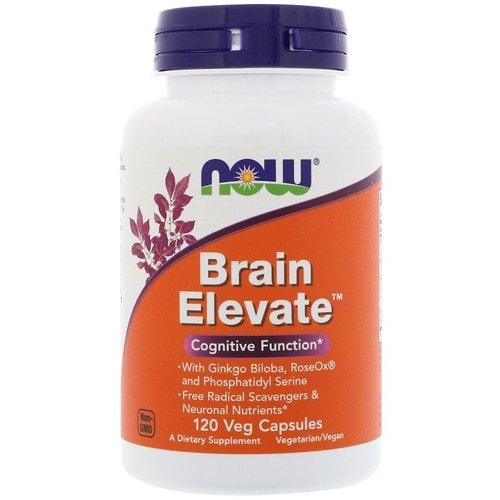Chances are you know at least one person dealing with dementia. Neurological decline is hard to watch. For some, it might seem like your genetic destiny. But research shows that you’re not stuck, brain health and function is changeable all the way through adulthood and old age. Turns out, it’s the everyday choices that you make that can lead to long-lasting improvements.
Get moving
Exercise gives you the immediate benefit of boosting your mood by increasing the neurotransmitters dopamine, serotonin and noradrenaline. It also improves focus and attention for hours after you exercise. More than that, it can actually help grow new brain cells in the hippocampus region of the brain responsible for long-term memory.
To take advantage of these brain-boosting effects, do one hour of moderate intensity aerobic exercise three to five times a week.
Kick unhealthy habits
Neurons that fire together wire together. Indulging in unhealthy patterns solidifies them in the brain, turning them into habits. Make some changes. Are you doing activities that don’t serve you well, like watching hours of Netflix after work or grabbing “quick fix” packaged meals each night? Once you identify unproductive patterns, you can shift away from them and replace bad habits with healthier ones.
Step out of your comfort zone
Methodically sticking to routines turns off your brain’s ability to grow and develop.
Your brain gets in a rut. Think of new activities, thoughts and developments as giving your mind a much-needed workout. Your actions and thoughts dictate both your beliefs and your brain health.
Step out of your comfort zone every day by trying something new. It can be scary at first, but the rewards are worth it. New learning experiences trigger neurogenesis (building new brain cells) and neuroplasticity (growing new neuron connections). So, look out for opportunities to learn a new language, play a new instrument, take dance lessons or try a new sport.
Make a list of things you’ve wanted to try but been too afraid to do. Then, give one a go. The feeling of accomplishment you feel from doing something you always wanted to makes it worthwhile. Before you know it, you’ll be adding new things to your list simply for the pleasure of the experience.
Take it lightly
Giving yourself anxiety isn’t the answer. Stress turns off the brain’s ability to make meaningful new connections. So start small, don’t try and conquer Mount Everest, yet! Instead, start with goals that you don’t have mental blocks against, then build up to more challenging things. By taking it step-by-step, you’ll know when you're ready for those big-ticket items. You won’t be frightened because it feels like the next logical step.
Adopt a child's mindset
Ever spend your time watching children? They are practically fearless, AND they will try just about anything. Their outlook is one of innate curiosity. When you look at the world and think, “Hmmm, I wonder what will happen when _____?” You are never bored, and fear doesn’t stop you. You treat life as a delicious experiment. (Try this playground workout for fun!)
Socialize
Chronic loneliness impairs brain function, so make the time to be around friends and family that make you feel connected. If you’re short on social connections, joining a community group or volunteering are great ways to meet like-minded people. Look for people who make you feel good, as well as those who make you laugh. Laughter triggers joyous emotions, and when positive feelings accompany learning experiences, they stick longer.
Take care of your health
Eat: Oxidative stress caused by the build-up of free radicals wrecks havoc on the body. It also is one of the main contributors to neurological degeneration. Trans and saturated fats harm the body by speeding up oxidative stress, so push them off your plate.
Vitamin E’s a powerful antioxidant that helps fight the free radicals in the brain and body. Eat a variety of Vitamin E containing foods like nuts and seeds and vegetables, including sunflower seeds, almonds, avocados and spinach.
Sleep: Getting enough sleep is imperative to a healthy active brain. The National Sleep Foundation recommends adults get 7 to 9 hours of sleep a night.
Breathe: Taking time to focus on your breath helps you destress and become more mindful. It’s also key to oxygenating the brain and activating neuroplasticity. Take 5 minutes, a few times each day to focus on extending your breath. Work to build up this practice over time.
Whatever changes you make to your diet and lifestyle, remember you are in control of your health and well-being. Stay empowered to make the best choices for yourself today, and your future self will thank you.




